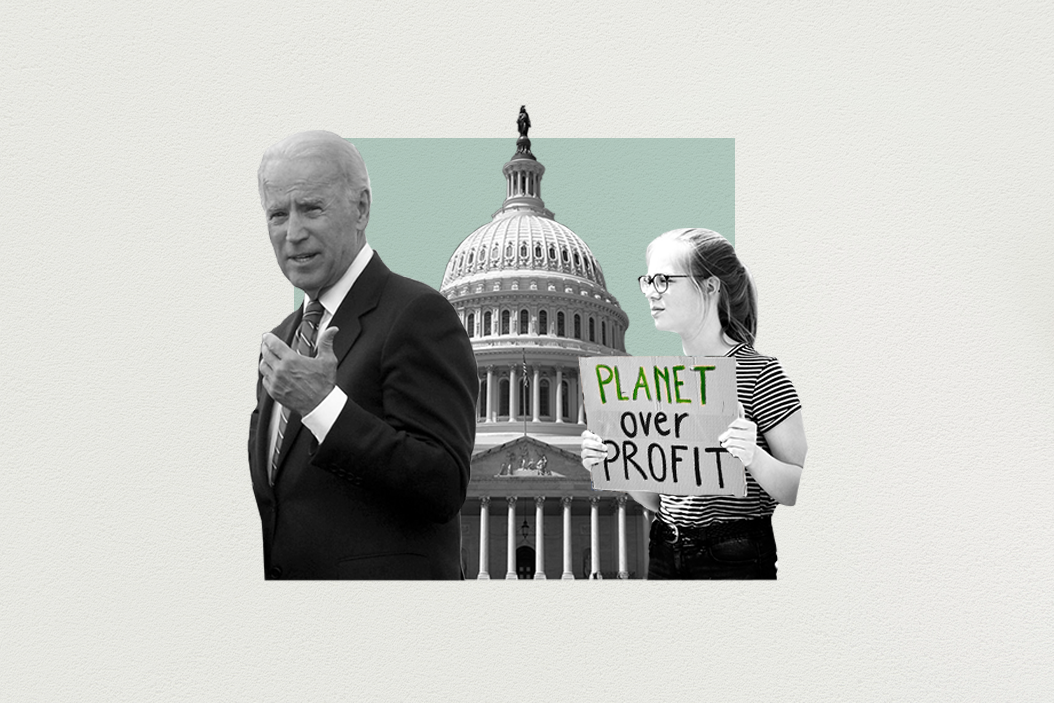What We're Watching: Biden's climate bill, Gaza ceasefire, Ukrainian nuclear jitters
US Senate passes Biden's big climate bill
Following a marathon vote-a-rama session that started late Saturday, the US Senate on Sunday passed a $740 billion package aimed at fighting climate change and lowering the cost of prescription drugs by raising certain corporate taxes. Although the legislation is a trimmed-down version of the Biden administration's doomed $3.5 trillion Build Back Better spending plan, it’s still the most ambitious climate legislation passed to date in America. Dubbed the “Inflation Reduction Act” — though economists doubt it'll live up to its name immediately — it allocates $369 billion for climate and clean energy investments, enables the government to negotiate some prescription drug prices, and slaps a 15% minimum tax on large corporations. Republicans say the tax hikes in the bill will kill jobs and spur inflation, but politically it's the latest in a series of victories for President Joe Biden at just the right time: three months ahead of November’s midterms. The legislation now heads to the House, where it is expected to be approved in a few days, before hitting Biden’s desk to be signed into law.
A tenuous truce in Gaza
Israel and the Islamic Jihad militant group agreed Sunday to an Egypt-brokered truce after three days of intense clashes in the Gaza Strip. Hours earlier, the Israeli military had killed a second Islamic Jihad senior commander in an offensive against the Iran-backed militant group in Gaza. At least 41 Palestinians have died in the worst violence the region has seen since Israel and Hamas — another militant group, which controls Gaza — fought an 11-day war in May 2021. The fighting began Friday, when an Israeli air strike eliminated Khaled Mansour, an Islamic Jihad top gun who'd previously survived five Israeli assassination attempts. Israel later carried out more air strikes and detained dozens of suspected Islamic Jihad members, while the group responded by firing upwards of 600 rockets at Israel. The tensions come at a tricky time in Israeli politics: caretaker PM Yair Lapid hopes that the offensive will help boost his national security credentials ahead of the Nov. 1 election, with former prime minister and security hawk "Bibi" Netanyahu planning his comeback.
Nuclear trouble in Ukraine
Europe’s largest nuclear power station, located in the Russian-occupied province of Zaporizhzhia in southern Ukraine, became the site of artillery duels over the weekend, with the two sides blaming each other for the fight. According to Kyiv, since the Russians took control of the plant in March, they’ve used it as a fortified position and stockpiled military hardware there. The IAEA was quick to sound the alarm over a “very real risk” of a nuclear disaster, warning that the shelling has seriously damaged the radiation sensors after striking close to a storage unit for spent fuel at Zaporizhzhia, one of four working atomic power stations in Ukraine (Chernobyl, the notorious site of the deadly nuclear accident in 1986 under Soviet rule, has been decommissioned). Although no radiation leaks were reported, the IAEA wants to dispatch an emergency and inspection team, but it’s unclear if the fighting will cease. Meanwhile, Ukraine’s President Volodymyr Zelensky denounced “Russian nuclear terror.”
